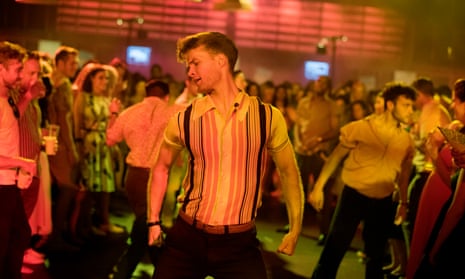After years of unregulated growth, it looks like the good times may be over for those in the UK who make their living from people going out at night-time.
Young people are drinking less and the number of nightclubs across the UK has nearly halved, from 3,144 in 2005, to 1,733 in 2015. In those 10 years, London has lost 40% of live music venues (pdf) and 50% of nightclubs.
However, what is bad news for the alcohol industry is an opportunity to expand businesses and activities that can thrive in the evenings and during the night. Through creative investment and collaboration, it ought to be possible to open up the country’s evening and night-time economy to a far greater number of people, delivering a £43bn boost to London alone by 2030, according to one estimate.
There are many examples of thriving events that do not depend on alcohol. There are the nuits blanche (white night) festivals in major cities, which might include light shows, illumination of cultural landmarks, contemporary art exhibitions and firework displays. And night markets, such as the one in the Canadian town of Richmond, which had more than 1 million visitors in 2016, also move the focus away from alcohol.
Plans are under way to develop London’s nightlife to help it join the ranks of global, 24-hour cities. The capital earns about £26bn from its night-time economy and provides about 1.3m jobs.
Against a backdrop of rising land values and gentrification of large swaths of the capital, the recent appointment of a night tsar and the setting up of a night-time commission for the city of London follow a recent trend in the appointment of night mayors. From the 24-hour entertainment zones of Amsterdam to the museum nights of Buenos Aires, public-private partnerships are being held up as a vital constituent in the creation of vibrant 24-hour cities.
Licensing lawyer Philip Kolvin, appointed by London mayor Sadiq Khan to chair his night-time commission, is a strong advocate of public-private partnerships and light-touch regulation.
We have been here before – and we need to learn from what happened previously. In the 1990s and 2000s, large property developers, landowners and corporate operators dominated the night-time economy. Residents were not represented and political influence and lobbying power was given to businesses. The result was the emergence of too many high streets dominated by alcohol consumption, to the detriment of more diverse alternatives.
Kolvin and night tsar Amy Lamé will need to create a more inclusive and safer night-time economy, and not rely on initiatives such as the kitemark schemes Purple Flag and Best-Bar-None. These schemes contribute little to cultural change; instead, they confirm the power and influence of the alcohol industry.
Legislators need to be bold and consistent in their use of late night levies and powers to reduce “high volume vertical drinking”, where people down their drinks and move on.
There has been success in some parts of London with the development of Business Improvement Districts, where local businesses invest to improve their trading environment. This might include funding police officers and street marshals to reduce anti-social behaviour, or combating the litter and damage left after people go out drinking. Some have criticised these moves for attempting to mask the worst excesses of nights out but they could be a valuable tool in encouraging a wider range of businesses to open later, from hair salons to spas.
Developing new entertainment zones in the spirit of cities such as Amsterdam, Cali, or Lisbon, could allow London councils to work with planners, property developers and creative entrepreneurs to write noise abatement, litter plans and a wider cultural mix into plans.
There are plenty of interesting examples. A range of creative enterprises, like Secret Cinema and Punchdrunk’s sensory theatre, use abandoned buildings, car parks and warehouses for events, pop-up restaurants, galleries and cinemas, often working closely with the local council. In Peckham, south-east London, Frank’s cafe is an open-air restaurant located at the top of a multi-storey car park. The challenge is ensuring such schemes are both inclusive and sustainable.
Regulation and legislation is going to be increasingly important in halting the decline in nightclubs and music venues, and it is here that Kolvin is likely to be a valuable asset by pushing the costs of soundproofing back on to property developers, and preventing new residents complaining about existing noise levels.
Partnership, planning and investment will be vital for re-energising our night-time public spaces. With a bit of imagination city leaders can ensure that 24-hour cities are inclusive, clean, and safe. The first step? Robust and consistently implemented enforcement of existing laws on alcohol.
Oliver Smith is reader in criminology at Plymouth University and author of Contemporary Adulthood and the Night-Time Economy.
